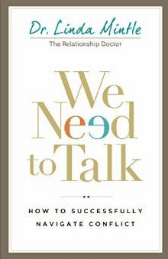 The pain of a broken relationship is often difficult to heal. Years of hurt and resentment can feel too big to tackle. And the idea of embracing emotional pain without being able to control the other person means an uncertain outcome.
The pain of a broken relationship is often difficult to heal. Years of hurt and resentment can feel too big to tackle. And the idea of embracing emotional pain without being able to control the other person means an uncertain outcome.
Reconciliation efforts are usually made because we still have feelings for the person and believe things could change.
Yet, pride can stop us from pursuing reconciliation. Reconciliation is blocked when we don’t admit wrongdoing and continue to blame others for our problems. The longer we wait, the more entrenched and estranged we become. We then begin to organize our lives without the people we once loved.
However, if we admit our faults, accept responsibility, and make every effort to repair the damage done, hope remains.
Reconciliation is possible in even the most difficult of relationships. It is an opportunity to grow beyond the past and the pain, with the hope of creating something new.
In Scripture, hope is referred to as a strong and confident expectation. The strength of that expectation comes because of what God can do in any situation. With hope, you expect without certainty and desire something better. Hope changes how we see ourselves and changes what we value. It affects our decisions to face conflict.
Hope opposes avoidance. It allows us to pursue a courageous life. More importantly, hope brings joy and peace into our lives. It protects us from becoming cynical or giving up. Keep hope alive. Reconciliation may be possible.
Excerpt and adapted from We Need To Talk by Linda Mintle, Ph.D. (Baker Books, 2015).


